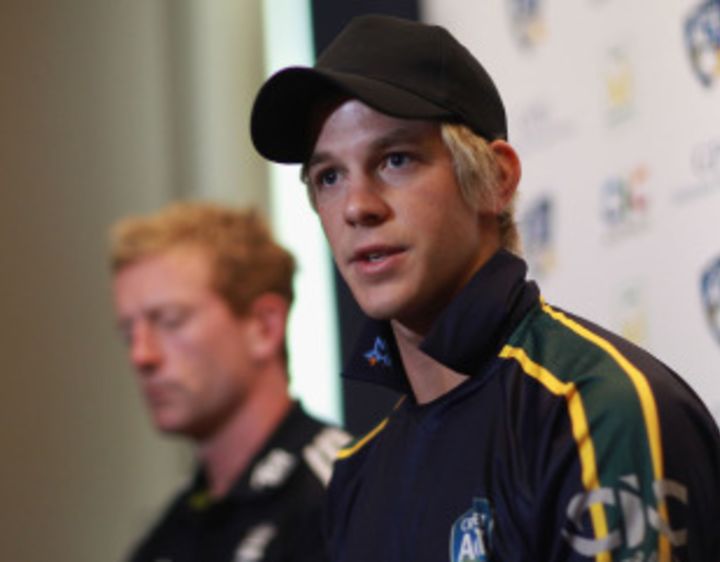What if Australia had picked Paine?
As we come into the New Year’s Test, it’s worth remarking upon the role that Tim Paine has played in the Australian team over the last few years

As we come into the New Year’s Test, it’s worth remarking upon the role that Tim Paine has played in the Australian team over the last few years. It wasn’t an easy decision back in late 2007 for the selection committee to overlook the obvious replacement, Brad Haddin, and go with the inexperienced and raw Paine. It was perhaps the best selection of the current NSP, and without it, Andrew Hilditch’s current role as chairman of selectors may be in serious jeopardy.
Without Paine’s recent batting at No. 6, a gutsy promotion by Ricky Ponting during the last Ashes, Australia’s top order would have been involved in some of the worst collapses in their history. Paine is the middle order batsman who can play the moving ball, keep the tail calm and even counterattack when he is required. Also, by batting at No. 6 he‘s given Australia the ability to play an allrounder at 7, which in partnership with Shane Watson gives Australia’s new crop of young bowlers a much needed rest during the day’s play.
But the real reason Australia should be pleased with the gutsy decision to take Tim Paine is that now they have a ready-made future Test Captain. Paine taking over the vice-captaincy role is not like the old days of Australian cricket when wicketkeepers were given the honour of vice-captain as a place holder, he is the obvious front-runner for top job. He has experience all over the world, has been played under two captains, is involved with strategy and planning, and knows what it is like to be the young player in the gun. This all might not have happened had the Australian selectors lost faith in Paine when he was first picked.
The start of Paine’s international career was not that pretty. He struggled a bit with the gloves. Even though he looked more comfortable with the bat, he didn’t really contribute with the bat till his 10th test. At this stage Brad Haddin was stroking effortless hundreds in domestic cricket and having each and everyone one of them reported noisily by the NSW press (they were also brutally attacking every Paine failure). Luke Ronchi was smashing balls everywhere. And even young Matthew Wade, who had to leave Tasmania because of Paine, was putting pressure on him on the field, and with the help of the Vic media his stock grew. Few would have blamed Andrew Hilditch for ditching Paine after his ordinary tour of India in 2008.
When Paine made runs back in Australia during the 08-09 summer, it put a distance between him and his rivals. Shortly after, Haddin saw the writing on the wall and retired from first-class cricket. Then came Ronchi’s form slump. And poor Matthew Wade may never fully recover from the injury he received from Dirk Nannes in that pointless ACA T20 match a while back. Form and luck had meant that Paine was suddenly an automatic selection.
It’s now clear that dropping Paine way back then would have been a massive mistake for Australian cricket. Australia would be in a weaker position now. They needed to rebuild, and Paine was a no-brainer in that he would eventually be a class player, even if back then the leadership side of things was not as obvious. Also, his batting style was what they needed. A strong player who could hold their middle order together, they didn’t need risky older counter-attackers like Haddin or Ronchi, and while Wade was an obvious talent, he wasn’t ready for international cricket at that point.
Paine has been safe in the team for the last 18 months and in that time he has become the most in-form keeper-batsman in world cricket. At the age of 27, with 37 Tests, he averages a steadily increasing 42 with the bat, and I see no reason why that won’t continue to rise over the years. Paine is a smart and talented with natural leadership skills. With some luck he will be Australia’s first long-term wicketkeeping captain, and when he is, the Australians will be in very safe hands.
Jarrod Kimber is 50% of the Two Chucks, and the mind responsible for cricketwithballs.com
Read in App
Elevate your reading experience on ESPNcricinfo App.